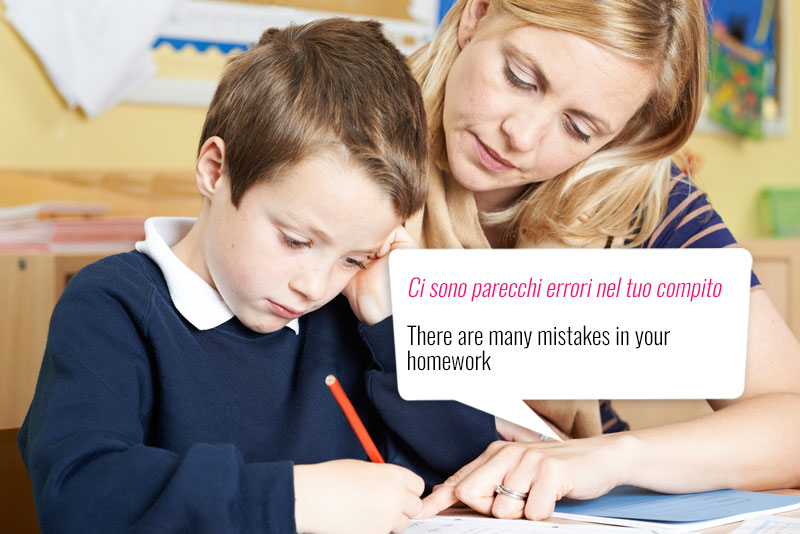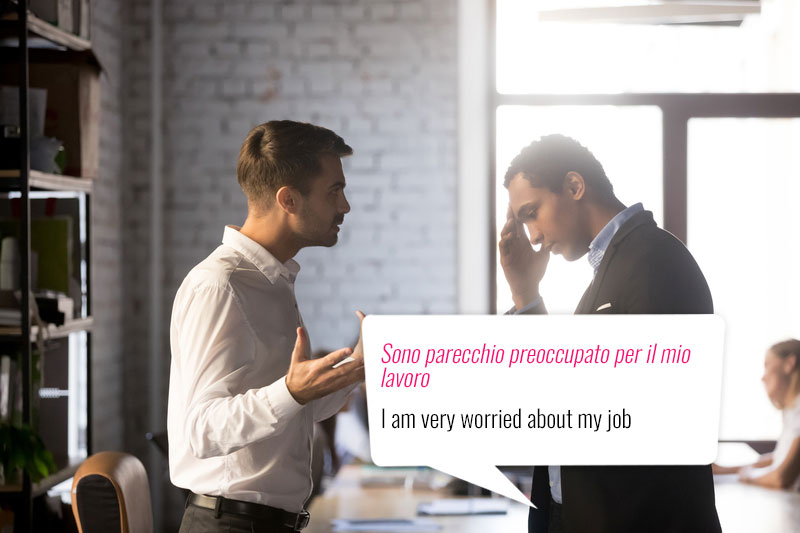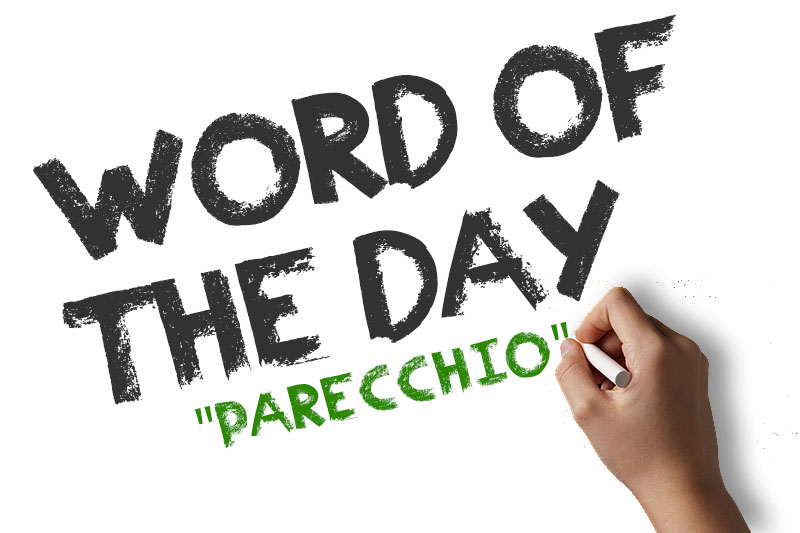I think I must use the word parecchio (pah-rai-keeoh) at least a dozen times every day and, like me, every Italian does.
Parecchio means “a lot,” “in large quantity,” “very” and can be used in all contexts you can think of: when we want to say we did something in great quantity, just like in ho mangiato parecchio al ristorante (“I’ve eaten a lot at the restaurant”), but also to show that we like something –or someone! — very much, as in te lo devo confessare, quel tipo mi piace parecchio (“I must admit it, I like that guy a lot”).
Parecchio can be an adverb, as in the cases we showed before, but it also works well as an adjective: this means it can have a singular and a plural, a masculine and a feminine. For instance, there’s nothing wrong in saying ho fatto parecchie foto in vacanza (“I took a lot of pictures when I was on holiday”): as you can see, parecchie here has a gender (feminine) and a number (plural).
Parecchio began being used in common language in the 13th century. It comes from the Latin pariculus, which was the diminutive of par, “even,” just like numbers. Now that’s a strange and curious etymology, don’t you think? How did we get from “even” to “a lot”? The mysteries of language!

—Ci sono parecchi errori nel tuo compito
— There are many mistakes in your homework

— Sono parecchio preoccupato per il mio lavoro
–I am very worried about my job

— Mi mancano parecchio gli anni dell’Università
–I miss the years of university a lot




























